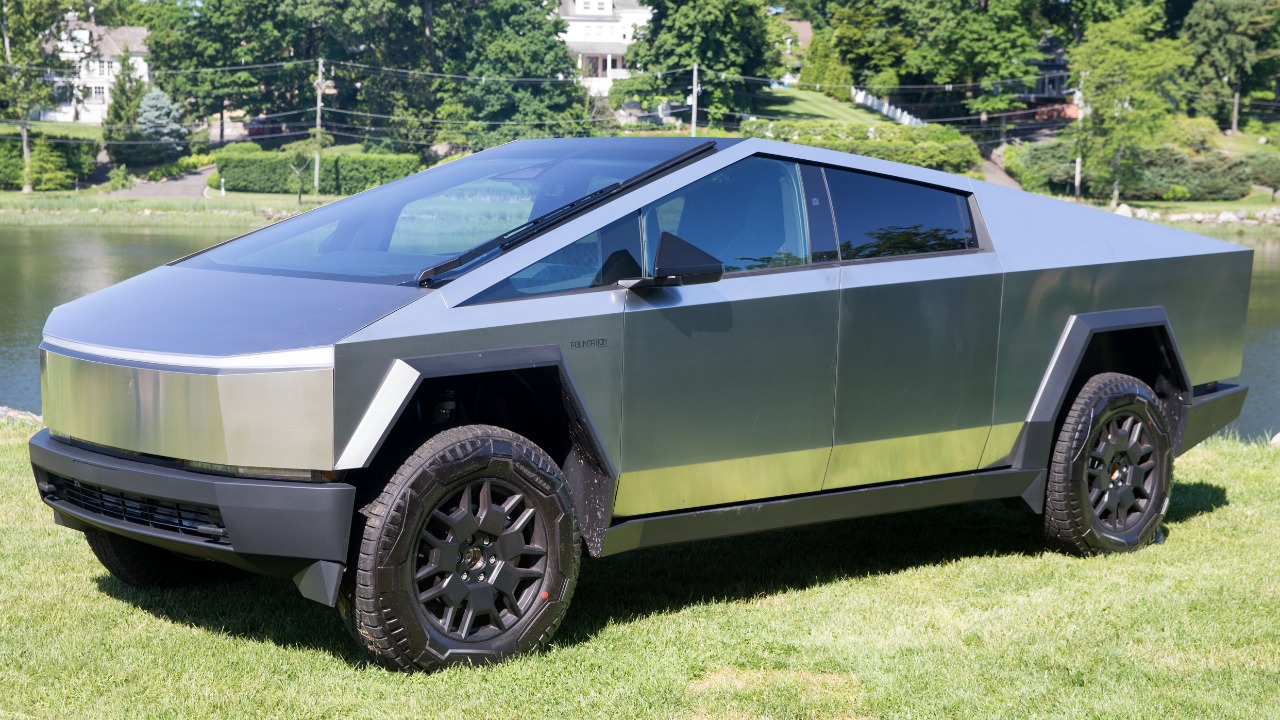
Tesla has once again found itself in the spotlight with the announcement of another recall for its Cybertruck vehicles. This time, the issue lies with the rear lightbar, which has been reported to detach while the vehicle is in operation. This latest recall, affecting thousands of units, is the most recent in a series of quality concerns for the electric pickup. As reported by Popular Mechanics, the problem is due to insufficient adhesion in the lightbar assembly. Tesla has advised owners to schedule free repairs at their service centers to prevent any potential hazards on the road.
The Specifics of the Lightbar Recall
The defect in question pertains to the Cybertruck’s rear lightbar, which fails to adhere properly to the vehicle’s tailgate, leading to potential detachment during operation. This recall impacts all Cybertrucks equipped with the optional lightbar, totaling approximately 46,000 vehicles produced since late 2023. The safety risk here is significant: a loose lightbar could separate and become a projectile on the road, increasing the risk of crashes for trailing vehicles.
How the Defect Occurs
The manufacturing flaw lies in the adhesive used to secure the lightbar to the stainless-steel body of the Cybertruck. This adhesive weakens over time due to environmental exposure and vibration, leading to the lightbar’s detachment. Initial quality checks at Tesla’s Austin, Texas factory missed these adhesion issues, which were only identified later through owner complaints and investigations by the National Highway Traffic Safety Administration (NHTSA). The problem emerged in vehicles built starting November 2023, with detachments reported as early as spring 2024.
Tesla’s Response and Remedy
In response to the issue, Tesla has proposed a fix that involves applying a stronger adhesive and adding mechanical fasteners to the lightbar. This will be done at no cost to owners, who will be notified of the recall via over-the-air notifications followed by service visits. Tesla has been proactive in communicating with affected owners, sending out recall notices by mail and urging immediate inspections to avoid liability. Furthermore, future Cybertrucks will incorporate the updated assembly process to prevent a recurrence of this issue.
Context of Prior Cybertruck Recalls
This is not the first time Tesla’s Cybertruck has faced recalls. Earlier in 2024, over 3,000 Cybertrucks were recalled because the pedal pad could dislodge and jam the accelerator. Another recall in the same year affected 11,000 units due to faulty windshield wipers failing in rain, as reported by Popular Mechanics. Additionally, a March 2024 recall addressed a defect with trim pieces on the roofline that could fly off at highway speeds.
Broader Implications for Cybertruck Owners
These recurring recalls have led to growing concerns among Cybertruck owners over the vehicle’s build quality. Reports from forums and social media show some owners calling for extended warranties. Each recall costs Tesla millions in repairs, potentially delaying production ramps at the Texas Gigafactory. Moreover, the repeated involvement of the NHTSA signals heightened regulatory scrutiny of Tesla’s stainless-steel vehicle designs.
Lessons from Tesla’s Recall History
Looking at Tesla’s recall history, the company has issued over 50 recalls since 2018. While many of these were for software glitches, hardware issues like this lightbar failure are becoming increasingly common. This trend is not unique to Tesla; recalls are rising across electric vehicle brands. However, Tesla’s high-profile issues amplify public perception of rushed launches. As the Cybertruck model matures, experts predict more fixes will be needed, urging buyers to weigh reliability against innovation.
More from MorningOverview